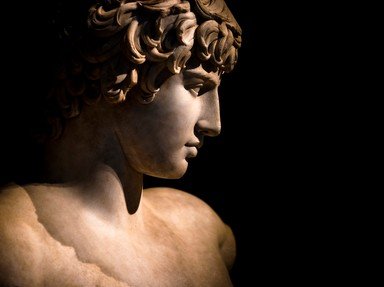Quiz Answer Key and Fun Facts
1. The wrestler Antaeus was the son of:
2. Procrustes, the lengthener, was killed in his own bed by:
3. Three persons contributed to the death of Heracles. The only one of the three not within Heracles' own nuclear family was:
4. Which of the following was Pelias' act of villainy?
5. Which of the following dastards killed his own son and had him eaten?
6. Which of the following was turned into a wolf by Zeus for daring to serve that deity a meal of human flesh?
7. How did Sinis, the Corinthian robber, villainously kill travelers passing by on their journeys to the far-flung reaches of the world?
8. Which of the following was the author of the original 'bellerophontic letter' -- a warrant for its bearer's death (like the one in Hamlet intended for the prince but palmed off on Rosencrantz and Guildenstern)?
9. This profane person and despiser of the gods chopped down a sacred tree and tried to sell his own daughter to feed his appetites, among other deeply discordant acts of villainy:
10. This man attempted to rape Euridyce, thus causing her death and catalyzing two important mythological sequences:
Source: Author
xaosdog
This quiz was reviewed by FunTrivia editor
CellarDoor before going online.
Any errors found in FunTrivia content are routinely corrected through our feedback system.

